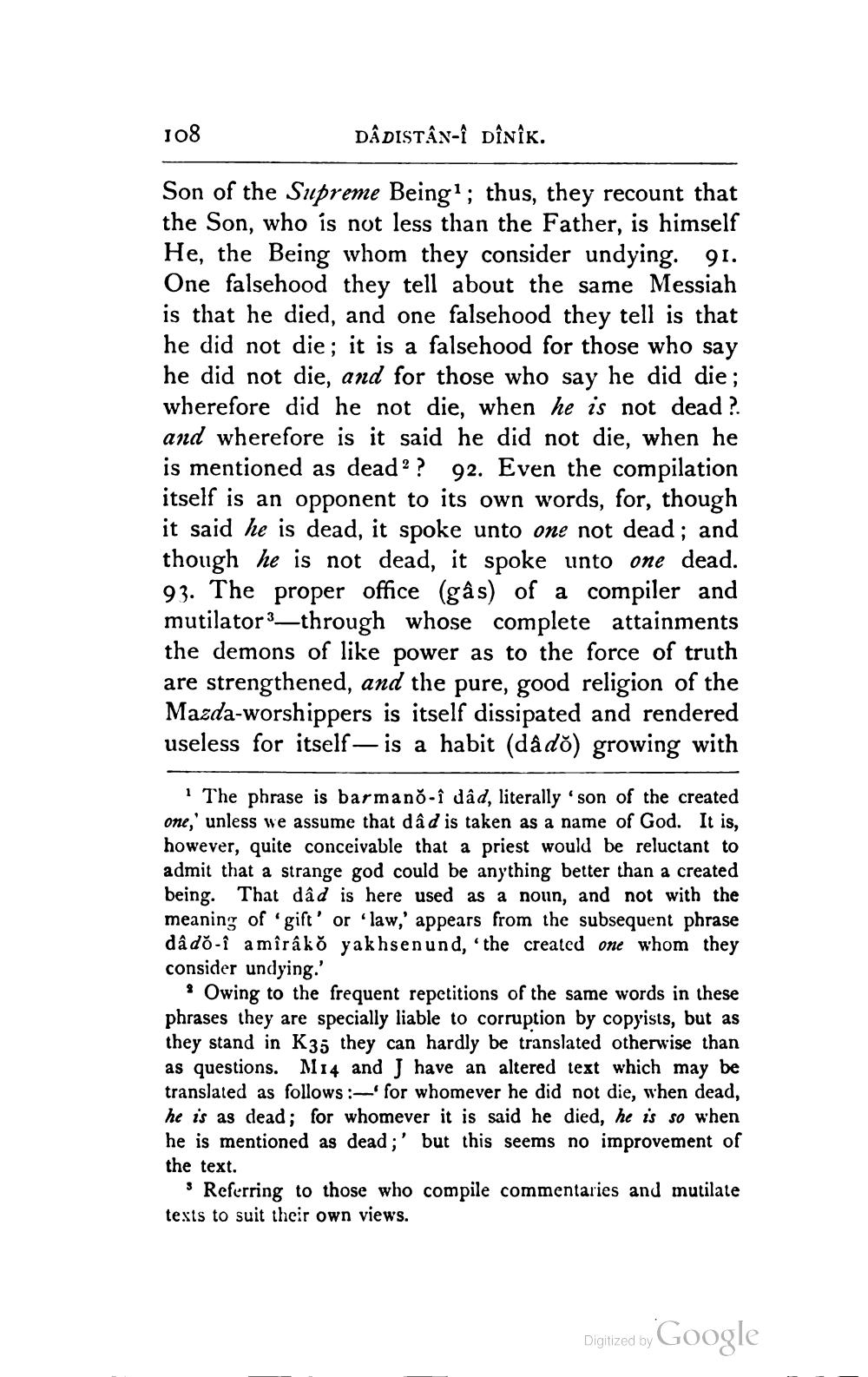________________
108
DÂDISTÂN-î DînîK.
Son of the Supreme Beingữ; thus, they recount that the Son, who is not less than the Father, is himself He, the Being whom they consider undying. 91. One falsehood they tell about the same Messiah is that he died, and one falsehood they tell is that he did not die; it is a falsehood for those who say he did not die, and for those who say he did die ; wherefore did he not die, when he is not dead ? and wherefore is it said he did not die, when he is mentioned as dead?? 92. Even the compilation itself is an opponent to its own words, for, though it said he is dead, it spoke unto one not dead; and though he is not dead, it spoke unto one dead. 93. The proper office (gâs) of a compiler and mutilator 3—through whose complete attainments the demons of like power as to the force of truth are strengthened, and the pure, good religion of the Mazda-worshippers is itself dissipated and rendered useless for itself — is a habit (då do) growing with
1 The phrase is barmano-î dâd, literally 'son of the created one,' unless we assume that dad is taken as a name of God. It is, however, quite conceivable that a priest would be reluctant to admit that a strange god could be anything better than a created being. That dad is here used as a noun, and not with the meaning of 'gift' or 'law,' appears from the subsequent phrase dâ do-î amirako yakhsenund, the created one whom they consider undying.'
. Owing to the frequent repetitions of the same words in these phrases they are specially liable to corruption by copyists, but as they stand in K35 they can hardly be translated otherwise than as questions. M14 and J have an altered text which may be translated as follows:-' for whomever he did not die, when dead, he is as dead; for whomever it is said he died, he is so when he is mentioned as dead;' but this seems no improvement of the text.
s Referring to those who compile commentaries and mutilate tests to suit their own views.
Digized by Google
Digitized by




